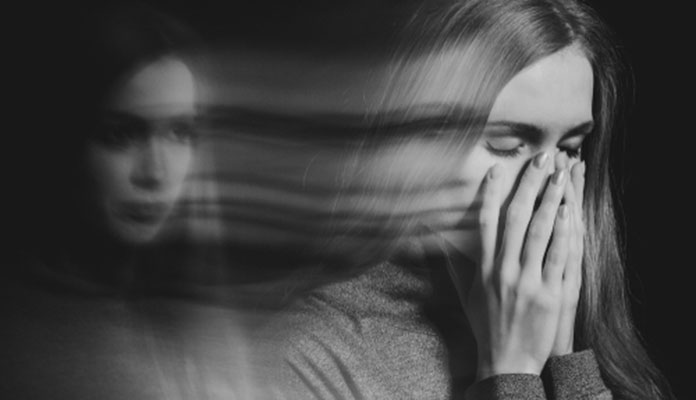

- #Depersonalization bipolar movie#
- #Depersonalization bipolar manual#
- #Depersonalization bipolar full#
A person may feel like one or more voices are trying to take control in their head.

Less than 20% of people with this disorder start experiencing episodes after the age of 20. The average onset age is 16, although depersonalization episodes can start anywhere from early to mid childhood. Symptoms can last just a matter of moments or return at times over the years. A person may experience depersonalization, derealization or both. Sometimes other people and things may feel like people and things in the world around them are unreal (derealization).
#Depersonalization bipolar movie#
This disorder involves ongoing feelings of detachment from actions, feelings, thoughts and sensations as if they are watching a movie (depersonalization). There is no average for age onset or percentage, and a person may experience multiple episodes throughout her life. The onset for an amnesic episode is usually sudden, and an episode can last minutes, hours, days, or, rarely, months or years. Dissociative amnesia may surround a particular event, such as combat or abuse, or more rarely, information about identity and life history. The main symptom is difficulty remembering important information about one’s self.
#Depersonalization bipolar manual#
There are three types of dissociative disorders defined in the Diagnostic and Statistical Manual of Mental Disorders (DSM): The symptoms of dissociative disorders depend on the type of disorder that has been diagnosed. A sense of detachment from your emotions, or emotional numbness.Mental health problems such as depression, anxiety and thoughts of suicide.Out-of-body experiences, such as feeling as though you are watching a movie of yourself.

Significant memory loss of specific times, people and events.Symptoms and signs of dissociative disorders include: Though finding an effective treatment plan can be difficult, many people are able to live healthy and productive lives. Treatment for dissociative disorders often involves psychotherapy and medication. However, the symptoms a person experiences will depend on the type of dissociative disorder that a person has. Stressful situations can worsen symptoms and cause problems with functioning in everyday activities.

The symptoms of a dissociative disorder usually first develop as a response to a traumatic event, such as abuse or military combat, to keep those memories under control. Women are more likely than men to be diagnosed with a dissociative disorder.
#Depersonalization bipolar full#
Up to 75% of people experience at least one depersonalization/derealization episode in their lives, with only 2% meeting the full criteria for chronic episodes. People from all age groups and racial, ethnic and socioeconomic backgrounds can experience a dissociative disorder. Weight Gain Related to Psychiatric TreatmentsĮCT, TMS and Other Brain Stimulation Therapiesĭissociative disorders are characterized by an involuntary escape from reality characterized by a disconnection between thoughts, identity, consciousness and memory. What to Avoid with Psychiatric Medications Methylphenidate or Dexmethylphenidate (Concerta, Ritalin and others)


 0 kommentar(er)
0 kommentar(er)
